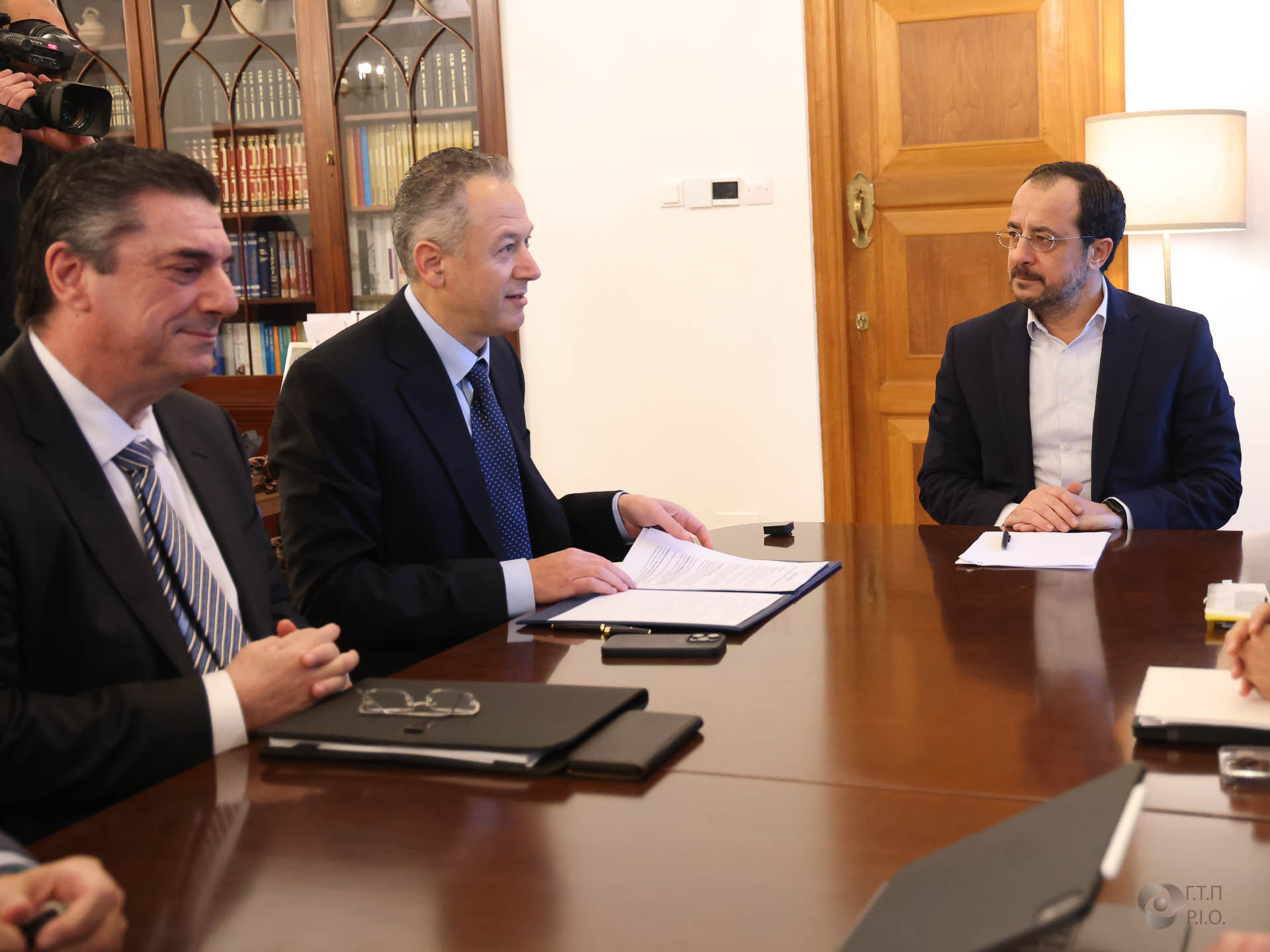Thousands of people will benefit from the expected reductions in some banks charges and preferential interest rates for vulnerable groups that banks are set to announce by the end of the week, Finance Minister Makis Keravnos said on Wednesday.
The minister was speaking following a meeting led by President Nikos Christodoulides at the presidential palace with the participation of the CEOs of Bank of Cyprus and Hellenic Bank, the second such meeting this week. These talks, attended by Finance Minister Makis Keravnos, focused on easing financial burdens for individuals and businesses.
Referring to the results of the meeting, Keravnos said that the banks’ forthcoming actions would benefit “several thousand” citizens and “benefits” would emerge for the entire economy.
He added that the banks had responded with fee reductions and preferential interest rates for specific categories of the public, focusing on charges and interest rates.
“Some charges are expected to decrease, and interest rates will become more favourable for certain social and population groups, such as consistent borrowers, pensioners, young people (especially those facing housing issues), small businesses and residents of remote areas, responding to requests from many communities,” he emphasised.
The finance minister explained that the government and the finance ministry have maintained an ongoing dialogue and consultations with banks, the Bankers’ Association and all economic stakeholders. This approach ensures the design and implementation of sound economic policy.
“This is a favourable time for decisions due to the continuous upgrades to the economy, which create a conducive environment for investors, banks, and the safety of citizens and businesses,” he said.
Without providing further details, he said that several ATMs will be reinstated in remote areas which may also enable free interbank transactions.
When asked if banks sought compensation, Keravnos clarified that “banks recognise the benefits provided by the government’s responsible and prudent economic policy,” citing economic upgrades and a favourable investment climate.
“Today, we see new investors entering banks, even from countries that previously avoided relations with Cyprus, including American investments in our banks,” he said.
On whether consistent depositors would benefit, Keravnos said that “the banking system is the nervous system of the economy,” adding that the challenges faced by the banking system in the past remain vivid in memory. While stressing the need for a robust banking system, he underscored the responsibility of large organisations to exhibit corporate social responsibility and accountability to society and the economy.
“As a government, we maintain a continuous dialogue with these institutions and the banking system, ensuring that all aspects are responsibly examined,” he said.
Regarding annual state revenues from financial institutions, Keravnos highlighted that the state collects approximately €200 million annually through income tax and a special levy on deposits. With the introduction of the Pillar 2 taxation system imposing a 15 per cent tax on businesses with turnovers exceeding €750 million, larger Cypriot banks are expected to contribute further.
Expressing satisfaction with the banks’ responsible approach, Keravnos concluded, “Through continuous dialogue, we will identify more areas for discussion and measures that will benefit individuals, the economy, and society overall.”






Click here to change your cookie preferences